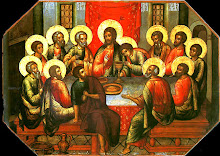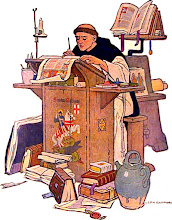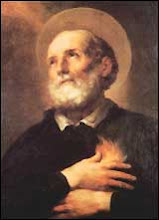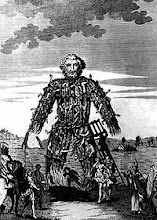 It is my conviction ... that no substantial gulf existed between the religion of the clergy and the educated élite on the one hand and that of the people at large on the other. I do not believe that it is helpful or accurate to talk of the religion of the average fifteenth-century parishioner as magical, superstitious, or semi-pagan. Nor does it seem to me that the most interesting aspect of late medieval religion lay in the views and activities of those who, like the relatively small number of Lollards, rejected its central tenets and preoccupations. The fifteenth and sixteenth centuries of England witnessed a period of massive catechetical enterprise on the part not only of the bishops and parochial clergy, whose responsibility it mainly was, but also on the part of members of religious orders and private individuals, like the printers Caxton, Wynkyn de Worde, and Richard Pynson. The teachings of late medieval Christianity were graphically represented within the liturgy, endlessly reiterated in sermons, rhymed in verse treatises and saints' lives, enacted in the Corpus Christi and Miracle plays which absorbed so much lay energy and expenditure, and carved and painted on walls, screens, bench-ends, and windows of the parish churches. It is true that the wealthy and literate had increasing access to and interest in types of spirituality previously confined to the monastery. Yet within the diversity of medieval religious options there was a remarkable degree of religious and imaginative homogeneity across the social spectrum, a shared repertoire of symbols, prayers, and beliefs which crossed and bridge even the gulf between the literate and the illiterate.
It is my conviction ... that no substantial gulf existed between the religion of the clergy and the educated élite on the one hand and that of the people at large on the other. I do not believe that it is helpful or accurate to talk of the religion of the average fifteenth-century parishioner as magical, superstitious, or semi-pagan. Nor does it seem to me that the most interesting aspect of late medieval religion lay in the views and activities of those who, like the relatively small number of Lollards, rejected its central tenets and preoccupations. The fifteenth and sixteenth centuries of England witnessed a period of massive catechetical enterprise on the part not only of the bishops and parochial clergy, whose responsibility it mainly was, but also on the part of members of religious orders and private individuals, like the printers Caxton, Wynkyn de Worde, and Richard Pynson. The teachings of late medieval Christianity were graphically represented within the liturgy, endlessly reiterated in sermons, rhymed in verse treatises and saints' lives, enacted in the Corpus Christi and Miracle plays which absorbed so much lay energy and expenditure, and carved and painted on walls, screens, bench-ends, and windows of the parish churches. It is true that the wealthy and literate had increasing access to and interest in types of spirituality previously confined to the monastery. Yet within the diversity of medieval religious options there was a remarkable degree of religious and imaginative homogeneity across the social spectrum, a shared repertoire of symbols, prayers, and beliefs which crossed and bridge even the gulf between the literate and the illiterate.- Eamon Duffy, The Stripping of the Altars
Traditional Religion in England 1400-1580
+ + +
Traditional Religion in England 1400-1580
+ + +
In my opinion, it was precisely this "shared repertoire of symbols, prayers, and beliefs" that built and maintained the best of Christendom in England until Henry's break with the Papacy in the early 1530s to the Elizabethan "Settlement" of religion.
The slide to present-day mayhem in the west was, thus, inevitable without these milestones and markers of true transcendence. The scattering of Christendom brought us to the brink. The hope for the old west is the Catholic Church still.
The slide to present-day mayhem in the west was, thus, inevitable without these milestones and markers of true transcendence. The scattering of Christendom brought us to the brink. The hope for the old west is the Catholic Church still.








No comments:
Post a Comment